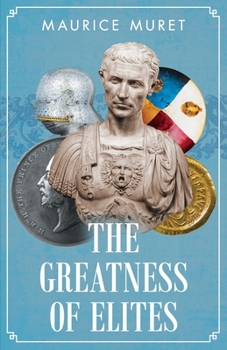The Greatness of Elites
Maurice Muret's The Greatness of Elites is a social history in the form of a shimmering tapestry of characters, both historical and fictional, who exemplify the elites of the cultured societies of Western Europe from ancient Greece to early twentieth-century Britain. Muret insists that elites constitute the essence of a great period of history. The Western genius, considered in its most noble creations, always contains something measured, tempered and balanced. It is not sufficient to have enlightened personages to direct the affairs of an entire nation in a particular direction. There must be an elite class that is capable of moulding society in its image.
The essential basis of the elites of Europe is identified by Muret as the humanist ideal, and it is this that constituted the strongest bulwark against the rising tide of the mass mentality emanating from Bolshevist Russia. In its glorification of the proletarian, Bolshevism presented an extreme danger to the traditionally elitist societies of Western Europe since such societies should be preserved in an organic manner by a social mobility that allows upward movement only in carefully graded stages. Only the Western ideal of humanism managed to offer an effective resistance to the alien threat that was the Communist state.
Related Subjects
History




